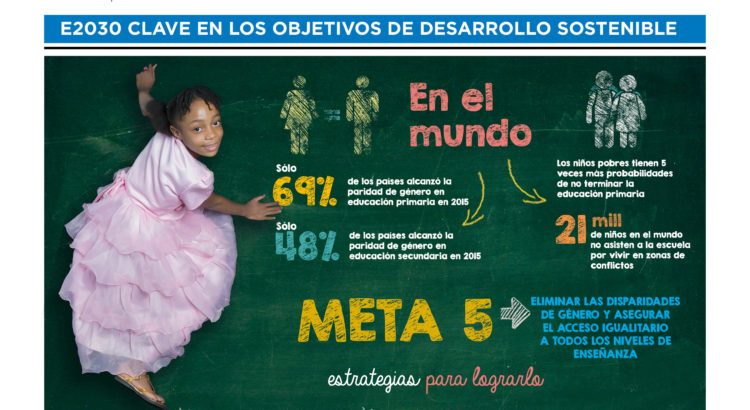Robots que reciben a los visitantes, coches autónomos, emprendedores animando a diseñar el futuro o el fin de la discapacidad, protagonistas de un evento lleno de propuestas que ya forman parte del presente.
El futuro no va a crearse solo. Necesita personas, visionarios, que trabajen para crearlo. Y esos protagonistas de lo que llegará se han reunido en Madrid durante dos días, y de la mano de El País, Telefónica, Iberdrola y el Santander, para contar al mundo en qué están trabajando. Un foro en el que nos recibía un robot pensando para que sepamos dónde estaremos los demás dentro de unos años. Porque ellos ya están allí, diseñando el futuro de la educación, la salud, el transporte, la cultura o la energía. El futuro de la economía y de los negocios. El futuro de nuestras vidas. Nuestro futuro.
“La transformación digital no es un problema, es una gran oportunidad”, explicó David Alandete, director adjunto de El País. “En los próximos cinco años vamos a ver una gran revolución. La mayoría de los navegantes llegará a Internet a partir de ahora”, sostenía Matt Brittin, presidente de Google para Europa, Oriente Medio y África. La suya fue una de las ponencias más inspiradoras del foro, donde animó a la gente a emprender y a utilizar las herramientas digitales para aprender. “Muchos aprendemos en YouTube”, reconoció. Algo necesario para estar al día en nuevas tecnologías y poder hacer frente a lo que llegará:“Vamos a un mundo conectado de 3.000 millones de personas. Serán 5.000 en cinco años y 20.000 millones en 10. El crecimiento creativo va a ser exponencial. También económico. Se va a crear empleo a gran velocidad, a conectar marketing con negocios y proveedores al instante”, explicó. ¿Cómo quedarse parado con oportunidades de ese tamaño?
Sin embargo, la adaptación al mundo digital no está siendo tan sencilla para las empresas tradicionales, aunque, como explicó Brittin, “todos los negocios son digitales porque todos los clientes tienen ya un ordenador en su bolsillo”. La necesidad de adaptarse a la tecnología es un imperativo que llega como un gran reto relleno de oportunidades, pero también como un proceso que, como explicó Álex Martínez Roig, director de contenidos de Movistar+, “nunca va a acabar”: se habló mucho de Big Data combinado con Inteligencia Artificial, dos avances en plena experimentación que ya están dando alegrías de muchas compañías. “Los datos son críticos porque nos informan de manera precisa sobre las audiencias y sobre lo que desean”, explicó Noelia Fernández, directora general de desarrollo de negocio y transformación digital de PRISA.
En Retina tuvieron un especial protagonismo los medios de comunicación. Y, pese al pesimismo que reina entre la profesión, desde el mundo tecnológico sólo se observan oportunidades. “No tengo ningún miedo sobre el periodismo, se está haciendo más periodismo que nunca”, sentenció Madhav Chinnappa, jefe de relaciones estratégicas, noticias y editores de Google. Aunque, eso sí, “el usuario ha tomado el control sobre lo que desea”, añadió. Gracias a la tecnología, explicó Roig, se puede satisfacer también a los grupos de clientes más pequeños. “Vamos a seguir haciendo buenos productos para nuestras audiencias y nuestros clientes”, dijo Fernández.
Aunque la parte del contenido parezca estar cubierta, es cierto que las dificultades económicas lastran la adopción de estos avances. “No hay una única solución”, explicó Chinnappa, algo en lo que estaban de acuerdo desde PRISA: “Los modelos que tienen más fuerza son los capaces de combinar distintos modelos”. En este sentido, Noelia habló de buscar economías de escala y una mezcla entre el cobro por servicios y la inclusión de publicidad. Y si algo no sale bien, tener en cuenta una máxima de las empresas tecnológicas:“Fracasar es parte del proceso hacia el éxito”, en palabras de Chinnappa. Aunque hay algunas pistas sobre el camino a seguir: “Para mí, la historia de ahora es la historia del engagement”, explicó Mark Little, periodista irlandés que ahora ocupa la vicepresidencia de Twitter y fundador de Storyful. Little animó a los periodistas y a los medios a utilizar las bondades de las redes sociales para crear contenido: “Toma este contenido y crea historias enriquecedoras”. Y puso una única condición para recorrer el camino de la digitalización: “Ahora es el momento, es el principio”.
“Sueño con terminar con la discapacidad para siempre”
“En 2025 no existirán los discapacitados. La tecnología hará que se superen todas las barreras”, aventuró Eythor Bender, profesor de la Singularity University cuyo sueño es, precisamente, mejorar las prótesis actuales y utilizar los avances que llegarán en los próximos años para lograr “cambios reales en la vida de muchas personas”.
También se habló de energía, donde el coche eléctrico tiene mucho que decir: pese a que fabricar una batería con 100 kilómetros de autonomía tiene un coste de 7.000 euros, recorrer esos mismos 100 kilómetros costará tan sólo 2 euros, según explicaron algunos expertos en la mesa dedicada a la revolución de la energía.
Muchos de estos avances vienen de la mano de emprendedores, aquellas personas dispuestas a arriesgarlo todo para diseñar el futuro. “Ser emprendedor es levantarte cada día viendo que se pueden hacer las cosas mejor y de forma diferente”. Así comenzó su intervención Gustavo García Brusilovsky, fundador de BuyVip, quien, no obstante, se lamentó de que “en España, el mundo start-up es muy pequeño”. De ahí que pronostique la unión de start-ups con grandes empresas como forma de crecer y desarrollar nuevos productos, algo que interesa a las compañías asentadas porque “buscan catalizar el cambio”, explicó Rebeca Minguela, cofundadora de Blink.
Uno de los retos del ecosistema emprendedor en España es la configuración del sistema productivo, basado principalmente en pymes. Eso provoca que la falta de formación y de fondos lastre la implantación de la tecnología. “Todos estamos pensando ya en la próxima frontera de qué hacer con los datos, pero algunos están todavía en la primera casilla”, explicó Adeyemi Ajao, uno de los fundadores de Tuenti que ayudó a que nacieran Cabify o Job and Talent, entre otras empresas tecnológicas. “La tecnología va mucho más por delante que el usuario”, añadió Brusilovsky.
Sea como sea el futuro que venga, lo cierto es que llegará cargado de oportunidades para todos. “Es un momento apasionante”, sentenció Álex Martínez Roig. Bienvenidos al futuro.
*Artículo tomado de: http://www.media-tics.com/noticia/6505/tecnologias-emergentes/la-transformacion-digital-no-es-un-problema-es-una-gran-oportunidad.html














 Users Today : 162
Users Today : 162 Total Users : 35459757
Total Users : 35459757 Views Today : 308
Views Today : 308 Total views : 3418280
Total views : 3418280